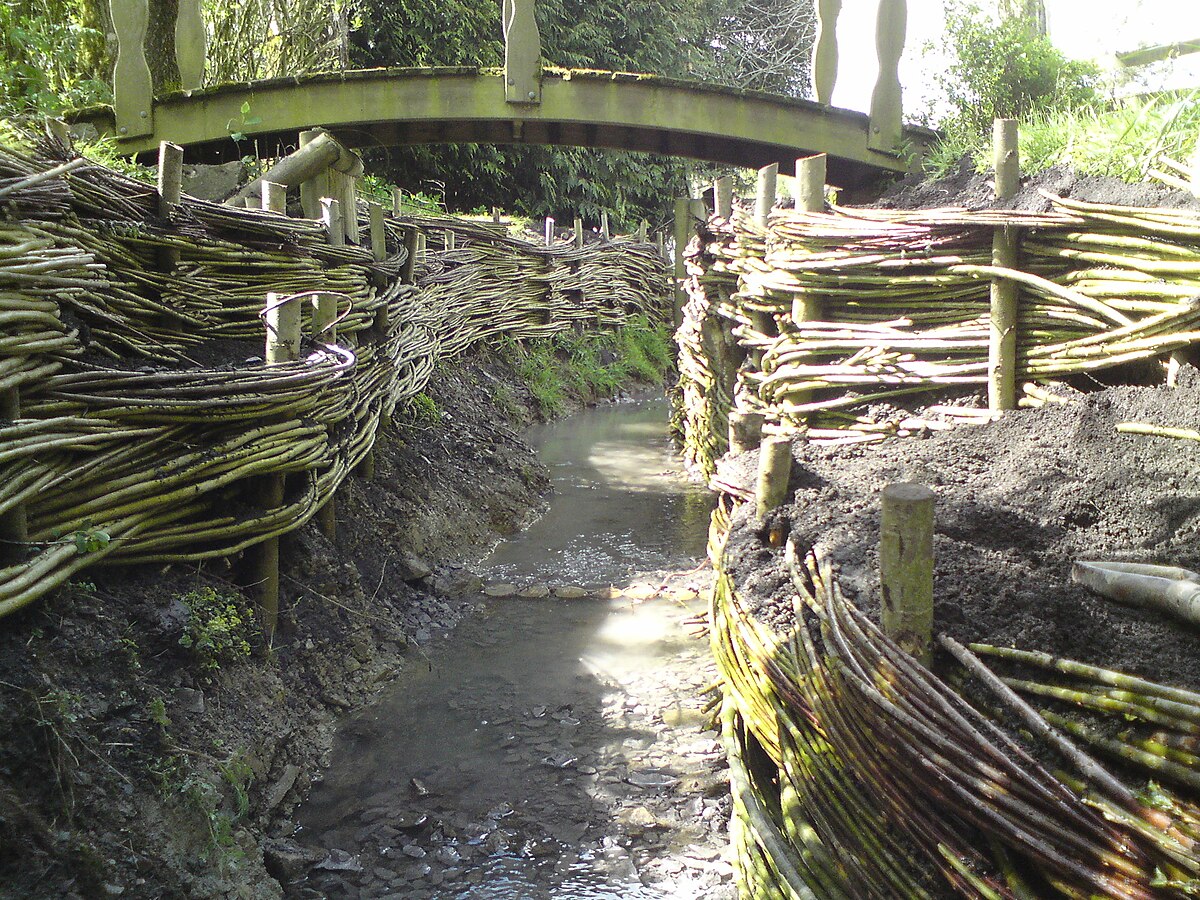Jameshenry
Member
- Location
- Cornwall
Yes done a bit to it on the river here on bad bends in the river, cut 4"-5" diameter lengths of willow and pushed them in with the digger and weaved in some branches , and filled in behind it with soil, all growing and no more erosionAnyone had a go at willow spiling to stop bank erosion? always fancied a go but not had the opportunity.

Spiling - Wikipedia
en.m.wikipedia.org







